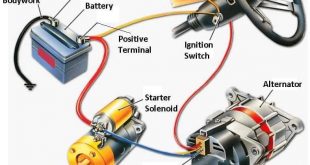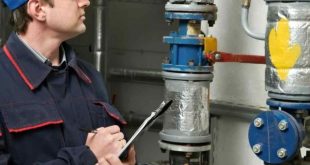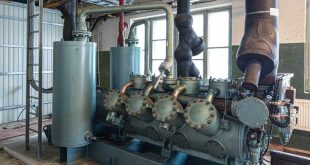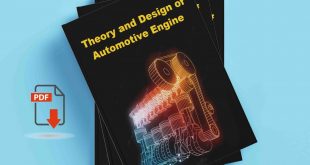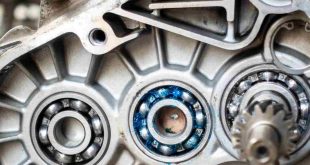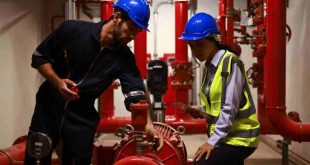The Role of the Ignition System in Automobiles The ignition system is an essential component in every gasoline-powered automobile. It is responsible for initiating the combustion process within the engine, providing the necessary spark to ignite the air-fuel mixture. Understanding how the ignition system works and its different components is …
Read More »Mechanical Engineering
Thermodynamics Combustion and Engines
Thermodynamics, Combustion, and Engines Thermodynamics and combustion are integral to understanding and optimizing the performance of internal combustion engines (ICEs). These engines form the backbone of modern transportation, power generation, and industrial machinery. By examining the principles of thermodynamics, air and fuel flows, combustion processes, and engine systems, this article …
Read More »Reciprocating Compressors Operation and Maintenance
Reciprocating Compressors: Operation and Maintenance Reciprocating compressors are vital equipment in numerous industrial applications, used for compressing gases to achieve desired pressures. Their robust design and adaptability make them ideal for diverse sectors, including oil and gas, manufacturing, refrigeration, and chemical processing. This guide explores the operation, maintenance, and advancements …
Read More »Power Piping ASME Guide
Power Piping Systems: An Engineering Guide Based on ASME B31.1 Power piping systems are critical components in the infrastructure of thermal power plants, industrial facilities, and process plants. The ASME B31.1 Code—Power Piping Code—sets the benchmark for the design, fabrication, inspection, and testing of piping systems associated with electric …
Read More »Theory and Design of Automotive Engine
Theory and Design of Automotive Engine. The Book provides brief information about the Historical development of automobiles, Principles of engine operation, Classification of engines. Two-stroke & four-stroke engines systems, theoretical processes, parameters, relative merits & demerits; Port timing diagrams, port design are briefly described. Relative merits & demerits compared to …
Read More »Bearings Basic Concepts and Design Applications
Bearings: Basic Concepts and Design Applications Bearings are essential mechanical components widely used in various industries to reduce friction and facilitate smooth motion between moving parts. By supporting rotating or moving shafts, bearings enable machines to operate efficiently and with minimal wear. Bearings come in numerous types, each designed for …
Read More »Turnaround Shutdown and Outage Management
Turnaround, Shutdown, and Outage Management by Tom Lenahan. Shutdown management is project management of a special kind: managing the repair, replacement, or maintenance of critical systems. Manufacturing and process plants, computer systems, airliners, and many other systems must be regularly closed down or taken out of service for planned maintenance …
Read More »Root Cause Failure Analysis
Root Cause Failure Analysis: Uncovering Systemic Issues in Industrial Operations Root Cause Failure Analysis (RCFA) is a systematic approach to identifying and addressing the underlying causes of equipment, process, or system failures. Rather than focusing on surface-level symptoms, RCFA digs deeper to uncover the fundamental issues that lead to failures, …
Read More »Electric and Hybrid Vehicles
Electric and Hybrid Vehicles Electric and hybrid vehicles (EVs and HEVs) have revolutionized the automotive industry by offering an environmentally friendly alternative to traditional internal combustion engine (ICE) vehicles. These vehicles are designed to reduce reliance on fossil fuels and decrease carbon emissions, making them a key component in the …
Read More »An Introduction to Modern Vehicle Design
An Introduction to Modern Vehicle Design Modern vehicle design is a multidisciplinary field that integrates engineering, aesthetics, ergonomics, and sustainability to create vehicles that meet consumer demands and regulatory requirements. It encompasses every aspect of a vehicle’s creation, from conceptual design to production, focusing on functionality, safety, efficiency, and environmental …
Read More »Troubleshooting Centrifugal Pumps and Their Systems
Troubleshooting Centrifugal Pumps and Their Systems Centrifugal pumps are essential components in various industries, used to transport liquids in processes like water supply, wastewater treatment, chemical processing, and many others. Like all mechanical equipment, centrifugal pumps can experience performance issues that can cause inefficiencies, downtime, or even system failure. Troubleshooting …
Read More »Turbopumps and Pumping Systems
Turbopumps and Pumping Systems: An Overview Pumping systems are integral components in various industries, from energy and chemicals to water treatment and aerospace. Turbopumps, in particular, are specialized pumps used in high-demand environments such as rocket propulsion systems and industrial processes. This article explores the fundamentals, design principles, operational characteristics, …
Read More » Boilersinfo Boiler and Mechanical Power Digital Library
Boilersinfo Boiler and Mechanical Power Digital Library
